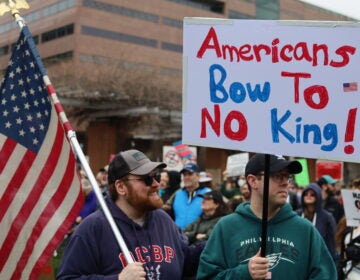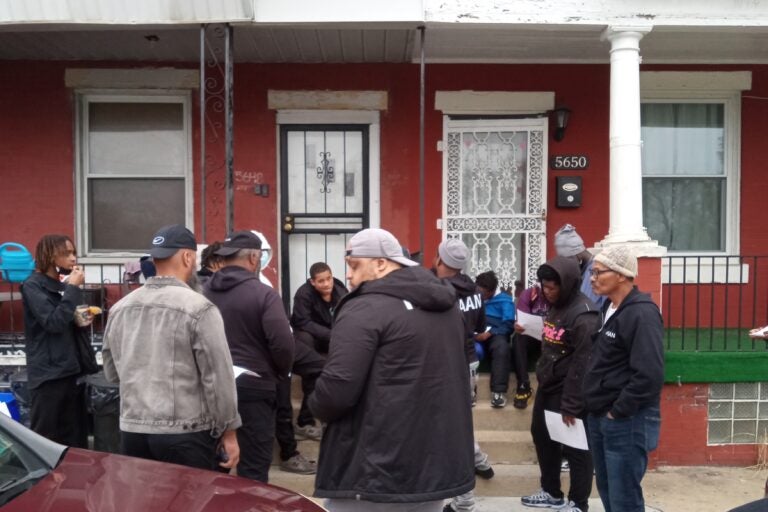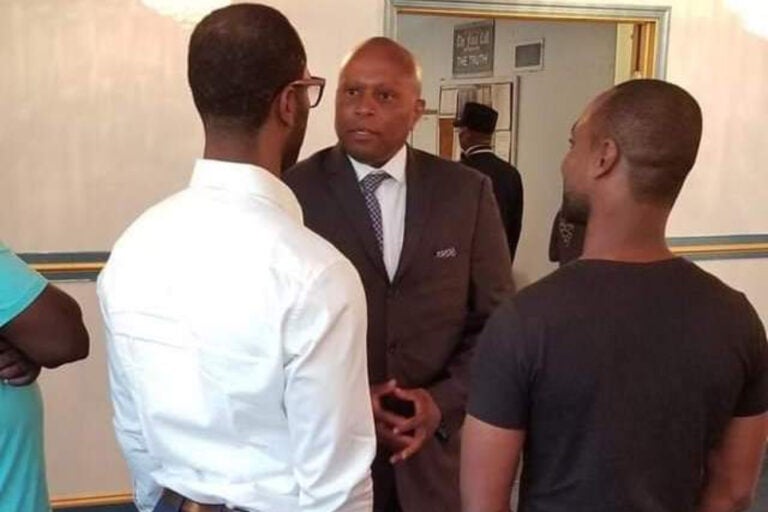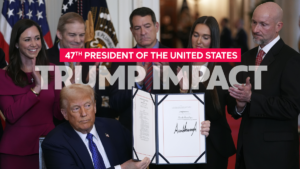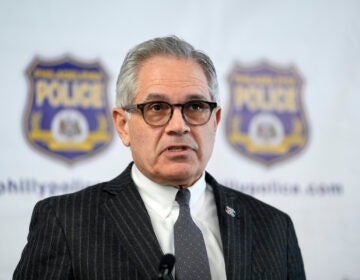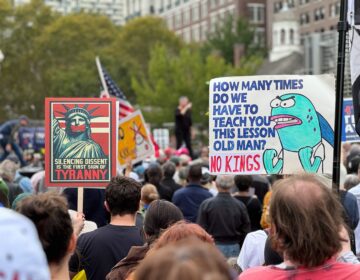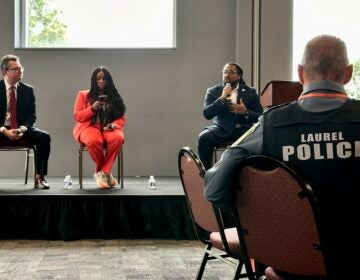2 Philadelphia researchers concerned with losing federal dollars for gun violence prevention
President Donald Trump proposed cuts to gun violence research that some experts say could cost lives.
Listen 0:59
Jessica Beard's research team from left to right: Christopher Morrison, Columbia School of Public Health, co-investigator on R21; Raha Raissian, Temple medical student; Siena Wanders, Temple medical student; Jessica Beard; Anita Wamakima, Temple general surgery resident; Jennifer Midberry, Temple Klein College, co-investigator on R21; Evan Eschliman, Columbia School of Public Health; and Tyrone Muns, Temple nursing (Kriston Jae Bethel for PCGVR)
From Philly and the Pa. suburbs to South Jersey and Delaware, what would you like WHYY News to cover? Let us know!
Two Philadelphia researchers said they are worried that proposed cuts to federal funding will harm efforts aimed at stopping gun violence in the city.
Dr. Elinore Kaufman, a trauma surgeon whose research focuses on reducing harm from injury and violence, said cuts could hinder research progress and discoveries made by leaders in the field.
“I think it’s a really scary time for scientists, for people in academics, for young people looking towards science as a career, the future is very uncertain,” said Kaufman, who also teaches at the University of Pennsylvania. “Because the way that scientific discovery works is that you don’t know at the beginning what the right answer is going to be. You don’t know what experiments are going to work, what treatments are going to work.”
President Donald Trump is looking to eliminate billions of dollars that support medical research at universities, hospitals and other research centers. His administration plans to reduce the extra funds, known as “indirect” funding, that these institutions receive to support research. The plan could result in a $4 billion drop in funding each year from the National Institutes of Health.
But a federal judge permanently prohibited Trump from restricting NIH funding for university and medical center research, restoring billions in grants amid expected appeals.
Dr. Kaufman said the court order is good news.
“But unfortunately, I don’t think anyone knows what it means or what will happen next,” she said.
It’s not clear how much money researchers in Philadelphia might lose because of the cuts, Kaufman said. She said the surgery department at the University of Pennsylvania has millions of dollars in active research funding from the federal government, which pay for staff salaries, training and public education programs. Any decrease in federal funds will hurt.
“These cuts are a threat to the scientists, scientific trainees, scientific progress and to all of us who whether we know it or not rely on those discoveries,” Kaufman said.
She said that through time, effort and testing, researchers are able to develop prevention strategies that work, and federal funding allows that to happen.
“I’m taking care of a patient in the hospital and I’m prescribing them a medication that we know works for the problem that they have,” Kaufman said.
She said one of the research areas includes working with gun owners to secure firearms and prevent firearm injuries.
“Secure storage is really important for preventing injuries to children, for preventing suicide, for preventing theft of guns,” Kaufman said. “But there’s a lot that we don’t know about what works best to help support firearm owners in keeping their households as safe as possible.”
Dr. Jessica Beard, associate professor of surgery and director of trauma research at the Lewis Katz School of Medicine at Temple University, said she is worried that a decrease in research funding will lead to more violence.
“It is going to detract from all of the scientific gains that we’ve been making in gun violence prevention and in approaching gun violence as not just a crime problem, but also a public health problem,” she said.
She said the public does not see the complete picture of gun violence.
“The human aspect of gun violence, the human toll that it takes on people who get shot in their families and their loved ones,” Beard said. “But also, people like me who care for the victims of gun violence. And they’re also not really learning about what causes gun violence and how we can solve it.”
Shonda McClellan of Southwest Philadelphia, a member of Moms Bonded by Grief, knows all too well the trauma that comes with violence. She lost her 17-year-old daughter, Erica McClellan, to gun violence in November 2017.
McClellan said any federal funding cuts to gun violence prevention could be detrimental to organizations like Moms Bonded by Grief, which has a licensed clinical worker who provides trauma therapy and grief support.
While crime is trending downward in the city, LuQman Abdullah, a community crisis intervention advocate for the Philadelphia Anti-Drug/Anti-Violence Network, said he fears any cuts to medical research involving gun violence prevention or programs could mean more gun violence in the city. He said too many young people devalue human life.
“My greatest fear is children, our children being murdered. My greatest fear is innocent people being murdered,” Abdullah said. “I mean, people in general shouldn’t have the right to pull the trigger and take the life of another human being. But we have so many young people who have no regard for human life and they’re just shooting randomly at will.”
Beard said the media has a role in how gun violence is portrayed. She said a two-year NIH grant funds her research to explore harmful reporting of gun violence and assist journalists who report on those stories in the community.
In October 2024, Beard said she applied for a five-year grant to continue her research on the impact of gun violence reporting has on victims that adhere to the guidelines of the Philadelphia Center for Gun Violence Reporting. The center aims to make news reporting in the city more compassionate and fair by connecting journalists with people who have experienced gun violence. She said the funding grant was withdrawn.
Research has been important in alleviating some major public health issues, Beard said, and it’s just as important in violence prevention.
“We have had so many other victories in public health, when it comes to injury, fatalities, deaths from smoking and cancer and cardiac disease, and we were just so hopeful that we were going to get to that same place with gun violence,” Beard said. “And I think research is a part of the way that those victories were won.”

Get daily updates from WHYY News!
WHYY is your source for fact-based, in-depth journalism and information. As a nonprofit organization, we rely on financial support from readers like you. Please give today.


